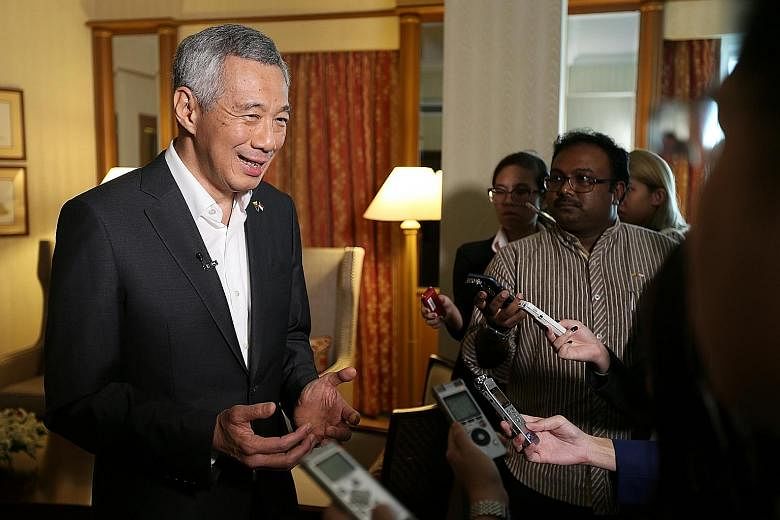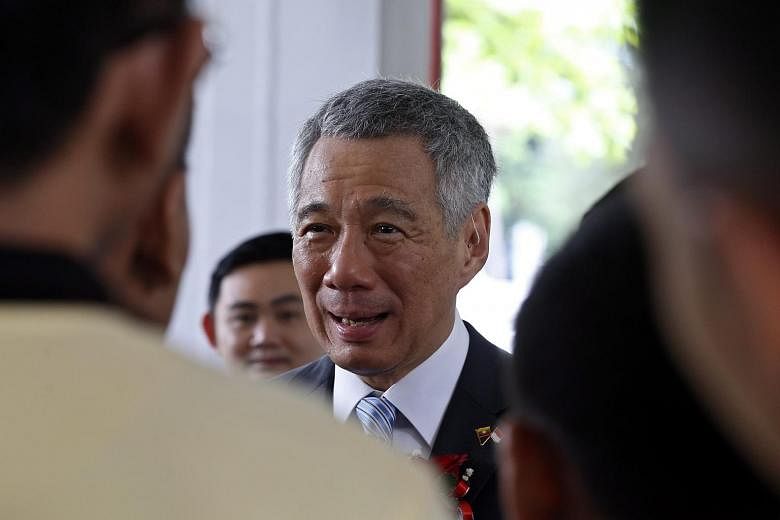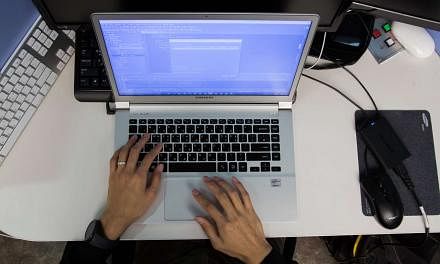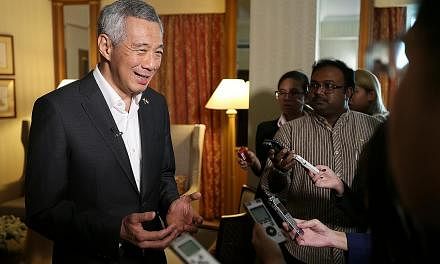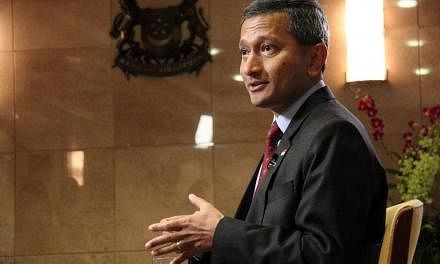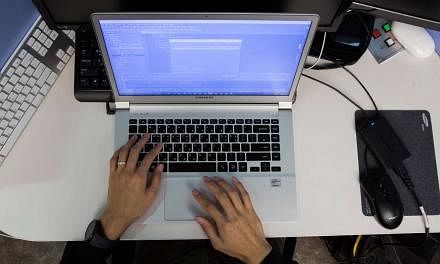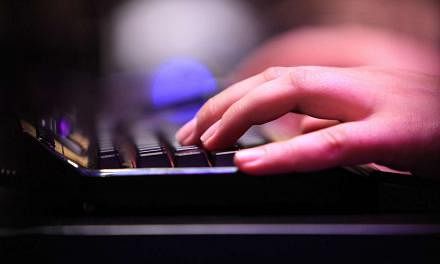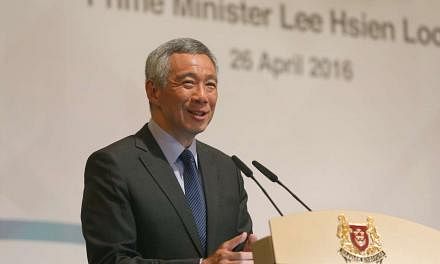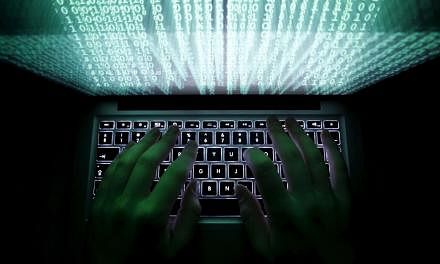The Government's move to delink computers used by civil servants from direct access to the Internet is "absolutely necessary" to keep government data and public services secure, said Prime Minister Lee Hsien Loong yesterday.
When the move takes effect next May, civil servants can still access the Web via separate government computers dedicated to that purpose, or use their personal mobile devices. There may be some inconvenience in day-to-day operations, PM Lee noted.
However, Singapore has seen very determined cyber attacks on its IT systems in the past few years and these threats are taken "very, very" seriously, he told reporters in Yangon on the final day of his three-day official visit to Myanmar.
With the threats becoming more severe and sophisticated and the Government relying increasingly on its computer systems, he said it was time to introduce measures that require public servants to use separate computers for work e-mail and Internet access.
"Otherwise, one day you find all your NRIC numbers, addresses and income tax returns for sale on the Internet... how will the Government explain?"
He said he had been using separate computers since the start of the year and found that "it's inconvenient but it's doable".
His explanation of the reasons for the move stems from a Straits Times report on Wednesday that 100,000 public service computers will not have Net access from next May.
He said: "I read the newspaper reports; it was front page news. I was surprised. Then I saw some of the reactions. People got quite excited.
"Maybe we didn't explain it enough. But it's not to do with being liberal or not being liberal. It's about being safe and secure, and doing what is necessary."
Under the new move, Web surfing will be allowed only on an employee's personal mobile devices or specially dedicated terminals. Schools, however, will be exempted, the Infocomm Development Authority said yesterday.
Following the ST report, people have raised concerns that government e-services would be affected and public servants would not be able to respond quickly to queries from citizens.
To allay the fears, Singapore's Cyber Security Agency chief executive David Koh stressed that civil servants will continue to have access to e-mail and the Web. Government e-transactions already go through a secure system, he added.
He said that, in the past year, 16 attacks on government networks made it past the firewall systems provided by vendors. But there was no damage because the malware was detected and destroyed.
"We can't be a Smart Nation that is trusted and resilient if our systems are open and vulnerable," he added.
PM Lee said the Government had grappled with the problem of infiltration for years and has put off the solution for "as long as possible".
"We've had intrusions... So far we think the damage done or the information stolen has not been disastrous. But we cannot be sure that that will not happen."
He noted that it was a "nuisance" to work with two separate systems, but security experts convinced him it was "a very, very serious matter".
"Are we happy? I don't think so, because it will slow us down in terms of day-to-day productivity. In terms of security, safety of our systems, safety of our citizens and information concerning them, it's absolutely necessary."
Teachers, including lecturers at tertiary institutions, will not be affected by the new move.
PM Lee said: "If your school page with your school anthem gets defaced, well, it's a nuisance but it's not the end of the world. So if the schools are on a different system... it's okay, but the government part must have a secure system to work."
SEE TOP OF THE NEWS
Public services won't be hit by move to secure systems
PM was 'volunteer No. 1' to test new way
